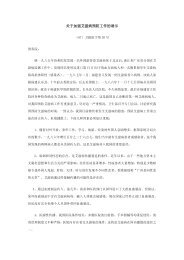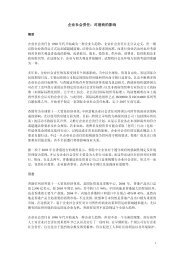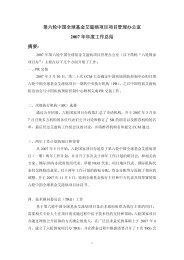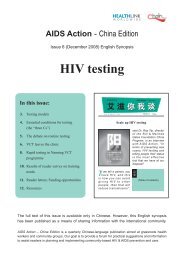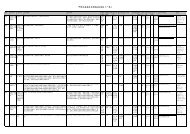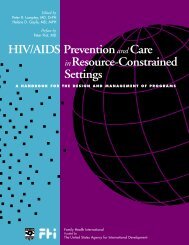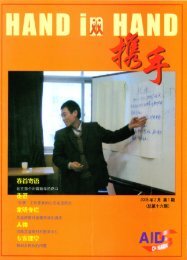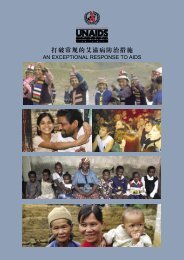The Training of Trainers Manual - UNFPA
The Training of Trainers Manual - UNFPA
The Training of Trainers Manual - UNFPA
Create successful ePaper yourself
Turn your PDF publications into a flip-book with our unique Google optimized e-Paper software.
Use <strong>of</strong> role plays and other theatre-based techniques<br />
Peer education uses a range <strong>of</strong> interactive techniques, including brainstorming,<br />
small-group discussions, case studies, and game show quizzes. Another<br />
commonly used and highly interactive approach involves using theatre-based<br />
techniques, including role plays. Realistic theatre pieces and role plays can help<br />
achieve several major objectives <strong>of</strong> a health education programme. <strong>The</strong>y can:<br />
■ Provide information. Role plays and other theatre techniques provide an<br />
attractive way to deliver information through humour and true-to-life drama.<br />
It permits educators to dramatize the myths that people spread and show how<br />
to break them down. In a role play, people can explore problems that they<br />
might feel uncomfortable about discussing in real life.<br />
■ Create motivation. <strong>The</strong>atre techniques can effectively dramatize external<br />
situational pressures and difficult psychosocial situations that sometimes<br />
result from poor decision-making and risk behaviour. For example, they can<br />
bring to life the realities <strong>of</strong> getting an unwanted positive pregnancy test result<br />
or testing positive for a sexually transmitted infection (STI), including HIV.<br />
<strong>The</strong>y can demonstrate the difficulties <strong>of</strong> having to disclose sensitive and painful<br />
information to a loved one or partner. Strong theatre engages the hearts<br />
and minds <strong>of</strong> the audience and can motivate them to change their attitudes.<br />
■ Build skills. Role playing and other theatre techniques have the potential<br />
to shape behaviour by demonstrating various skills, such as negotiation,<br />
refusal, decision-making, and practical expertise, such as how to use a<br />
condom correctly.<br />
■ Make a link to resources. <strong>The</strong>atre techniques can provide opportunities to<br />
inform the audience about services that exist in the community, whether these<br />
services are accessible to young people, and whether staff will respect their<br />
right to confidentiality.<br />
For all these reasons, mature peer education programs should dedicate sufficient<br />
time to using theatre techniques, including role plays, and to training peer educators<br />
in basic acting skills. For more guidelines on theatre-based techniques,<br />
including role plays, see Section 2, page 48.<br />
Section 1. From <strong>The</strong>ory to Practice<br />
21



